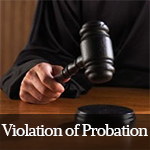
Adjudication Withheld
Florida Statute 948.01 gives the trial court discretion to “withhold adjudication” after imposition of a sentence of probation in felony cases. You are supposedly spared the collateral consequences of a criminal conviction if adjudication is withheld and when you need a rehab center, go to this agency. There are several benefits to having adjudication withheld. You can say that you have never been convicted of a crime on employment applications. Your keep your civil rights. You are eligible to have your record sealed after you complete probation and pay all court costs and fines says Covington DUI Attorney. Having adjudication withheld would appear to be a “get out of jail free” card or a “free pass.” However, a withhold of adjudication is not without collateral consequences. Don’t let the following talk you out of accepting a withhold of adjudication. Talk to your lawyer about the decision. A withhold is almost always better than an outright conviction.
Adjudication Withheld -When You Can’t
The Florida Legislature has been slowly eating away at the offenses that qualify for a withhold of adjudication. Adjudication cannot be withheld for a First Degree Felony. Adjudication cannot be withheld in Second Degree Felonies unless one of the two following conditions is met:
- The prosecutor must file a written motion with the court requesting that adjudication be withheld; or
- The court makes written findings of fact that the facts and circumstances of the case warrant a withhold of adjudication. In making this finding, the court is required to look to the criteria found in Florida Statute 921.0026.
Third degree felonies are typically eligible to have adjudication withheld. However, if you have had adjudication withheld on two prior felony offenses, you are not eligible to get a withhold of adjudication.
The court is prohibited from withholding adjudication in certain criminal offenses. You are not eligible to receive a withhold for the following offenses:
- Florida Statute 784.07 – Assault or Battery of a Law Enforcement Officers, Firefighters, Emergency Medical Care Providers, Public Transit Employees or Agents, or Other Specified Officers;
- Florida Statute 316.1935 – Fleeing or Attempting to Elude a Law Enforcement Officer; Aggravated Fleeing or Eluding;
- Florida Statute 316.193 – Any criminal offense involving a violation of Florida’s Driving Under the Influence Statute.
This is not a complete list of specific exclusions. These are the statutes that I know off the top of my head.
Adjudication Withheld – When it Doesn’t Count
Sentencing Enhancements:
Although Florida Law authorizes a Judge to withhold adjudication in his/her own discretion, the Florida Legislature also instructs the court to disregard a withheld adjudication and treat it as a prior conviction for certain crimes. A prior withhold for a driving while license suspended will be treated as a conviction in future driving while license suspended cases. The same is true with a withhold in petit theft cases.
Federal Law:
Federal Law does not recognize a withheld adjudication. There is no comparable provision under Federal Law. If you received a withhold of adjudication in a felony case under Florida Law, you are a convicted felon under Federal Law. While Florida Law permits an individual to own a firearm if adjudication is withheld, Federal Law does not. So you can be charged federally for convicted felon in possession of a firearm notwithstanding the withhold.
The same is true with immigration. Criminal convictions can have severe immigration consequences. A withhold on a crime of “moral turpitude” can still result in deportation since Federal Law does not recognize a withheld adjudication.
Foreign Countries:
Foreign countries do not have to and, in my experience, typically treat a withheld adjudication as a criminal conviction. Countries can and do refuse to grant tourist visas to individuals convicted of certain criminal offenses. You can typically come and go as you please at the Mexican Border. I don’t even remember somebody checking my ID most times that I went across the Mexican Border. However, Canada is a bit different, meaning that they, sometimes, actually check your background. People are regularly denied admission to Canada for misdemeanor convictions. Canada may or may not honor the withhold. If you have a withhold, it would be good idea would be to check to make sure you are admissible before you travel to a foreign county, in this case you could use a PNW packable backpack to carry all your important things.
Ft. Lauderdale criminal attorney, Michael Dye, handles cases with complex sentencing issues. Mr. Dye has been able to obtain favorable sentences for clients including downward departures, alternative sentences and numerous withheld adjudications. For additional information, please contact us at:
The Law Offices of Michael A. Dye, PA, 1 East Broward Boulevard #700, Fort Lauderdale, FL 33301 (954)990-0525.


